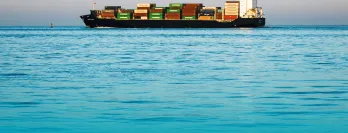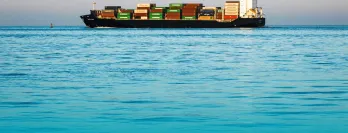
Incoterms
The Incoterms® rules have become an essential part of the daily language of trade. They have been incorporated in contracts for the sale of goods worldwide and provide rules and guidance to importers, exporters, lawyers, transporters, insurers and students of international trade.

Incoterms Explained: Ex Works (EXW)
When goods are bought or sold "Ex Works" (EXW) it means that the Seller is making the goods available at their factory or warehouse. The buyer is then free to come and pick up the goods. Ex Works places full responsibility for cost and risk with the buyer, as the buyer has to arrange everything.

Incoterms Explained: Cost and Freight (CFR)
Since January the Incoterms 2020 are in effect. Every ten years these Incoterms are updated. You can read more about the most important changes compared to Incoterms 2010 in one of our earlier blogs in the Incoterms series. The Incoterm in this blog is one of the Incoterms specifically for transport over water: Cost and Freight (CFR).

Incoterms Explained: Free on Board (FOB)
When goods are bought or sold “Free on Board” (FOB) it means that the seller delivers the goods to a ship at a port previously agreed to by the seller and the buyer. The seller loads the goods onto the ship. The buyer then takes care of the import formalities and transportation to the final destination. Free on Board is one of the oldest Incoterms. It dates back to when goods were carried by sailing ships and it was one of the terms when the Incoterms were first released in 1936. It is also one of the most used commercial terms.

Incoterms Explained: Delivery Duty Paid (DDP)
When goods are bought or sold “Delivery Duty Paid” (DDP) it means that the Seller delivers the goods to a place previously agreed to by the seller and the buyer. This can be any location. The agreed place of delivery (e.g. the terminal) needs to be specifically named.














